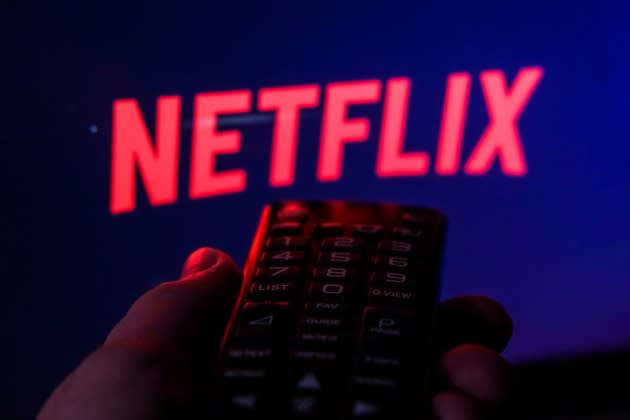Netflix Touts Record 7.7% Share Of Total TV Viewing In June, Defends Binge-Release Model As Key Part Of Its “Significant Long Term Business Advantage”

Netflix jumped ahead of Thursday’s planned release by Nielsen of monthly viewership through TV sets, revealed in its second-quarter shareholder letter today that its share of total TV viewing in the U.S. hit an all-time high of 7.7% in June, up from 6.6% in June 2021.
The stat, which is expected to be part of Nielsen’s monthly report on the overall TV and streaming field, proves “our ability to grow our engagement share as we continue to improve our service,” the company wrote in the letter.
More from Deadline
Netflix Sheds Fewer Than 1M Subscribers In Q2, Exceeding Expectations
'Bridgerton' Season 3 Adds New Cast & Plot Details Revealed As Filming Begins
Netflix Q2 Earnings Report: Deadline’s Full Coverage
“While we always have room to improve, we’re very pleased with how far we’ve come in providing so much satisfaction and enjoyment to our members,” it said. “In the U.S., which is one of the most competitive markets in the world, we drew more TV viewing time than any other outlet during the 2021-22 TV season.” The letter included a chart showing Netflix at 1.334 trillion minutes of streaming, dwarfing second-place CBS, which had 753 billion minutes of viewing.
Stranger Things, the start to whose fourth season set a Nielsen record with 7.2 billion minutes of streaming from May 30 to June 5, along with and widely seen titles like The Lincoln Lawyer and Adam Sandler basketball drama Hustle, drove tune-in during the month.
How release strategy correlates with tune-in continues to be the subject of vigorous debate. While Netflix’s signature binge-release strategy — a marked contrast with the typically one-episode-at-a-time method of Disney+, Apple TV+, HBO Max and other rivals — has served it well by some measures for the past decade, skeptics have questioned the company’s insistence on it during such a reversal of fortune for Netflix. The company has now lost more than 1 million subscribers in the first half of 2022 compared with a gain of 26 million in the first half of 2020. Why keep burning off all of that programming, the criticism goes, when a phenomenon like Stranger Things could become a two-month orgy of publicity and word of mouth?
In the shareholder letter, the company appeared to push back and defend its methodology, though it did not draw attention to the fact that both Ozark and Stranger Things had staggered rollouts of their most recent seasons.
“As a pure play streaming business, we’re unencumbered by legacy revenue streams,” the letter said. “This freedom means we can offer big movies direct-to-Netflix, without the need for extended or exclusive theatrical windows, and let members binge watch TV if they want, without having to wait for a new episode to drop each week. This focus on choice and control for members influences all aspects of our strategy, creating what we believe to be a significant long term business advantage.”
Best of Deadline
2022-23 Awards Season Calendar - Dates For The Oscars, Emmys, Grammys, Guilds, Festivals & More
NFL 2022 Schedule: Primetime TV Games, Thanksgiving Menu, Christmas Tripleheader & More
Sign up for Deadline's Newsletter. For the latest news, follow us on Facebook, Twitter, and Instagram.

 Yahoo News
Yahoo News 